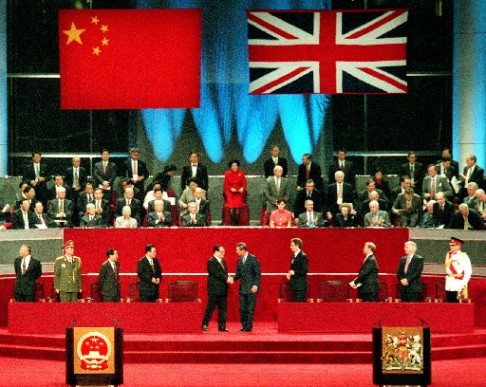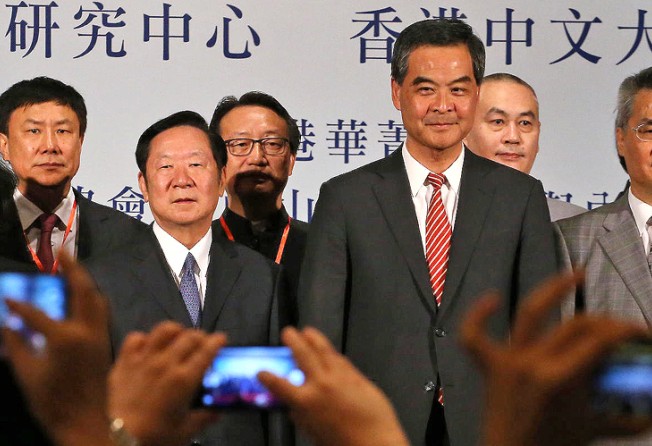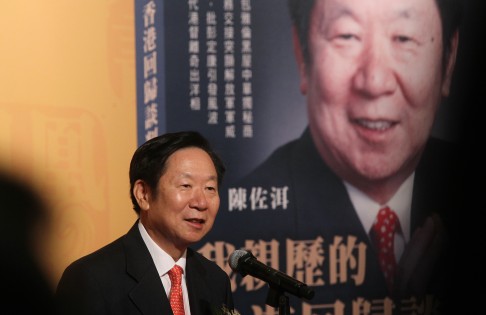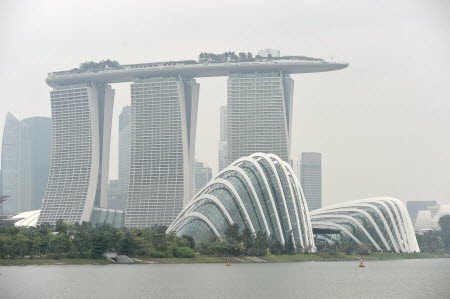
Hong Kong's failure to 'implement de-colonialisation' has caused serious problems, says former Beijing handover official
Chen Zuoer ties social and economic strife to 1980s 'de-sinofication' and 'de-colonisation' failings - but local minister urges tolerance

A failure to carry out "de-colonisation" is the root cause of internal strife and economic woe in Hong Kong, a former Beijing official says - but the city's constitutional affairs chief swiftly played down those remarks, calling for "tolerance and trust" from the central government.
Speaking at a forum in Hong Kong, Chen Zuoer also criticised the city for allowing a "revival of de-sinofication". He was referring to a belief in Beijing that British colonialists started a movement to reject and eliminate the mainland's influence in the city as talks on its future began in the early 1980s.
His tough words came a week after Beijing's top official in the city, liaison office boss Zhang Xiaoming , sparked intense debate by describing the position of chief executive as "transcendent" over the executive, legislative and judicial branches of government.
Commentators said the pair's comments highlighted concern in Beijing that the central government's authority was being challenged in Hong Kong.
"Because de-colonisation wasn't implemented in accordance with the law, things that should be put in the history museum ran into the streets," said Chen, in an apparent reference to the hoisting of the colonial flag at protests in the city.
"De-sinofication is at work, but there is no de-colonisation. This harms the 'two systems' under the 'one country, [two systems' principle] ... and creates serious internal strife and many problems."
Chen served as deputy director of the Hong Kong and Macau Affairs Office and was a key negotiator in the run-up to the 1997 handover. He now heads the semi-official Chinese Association of Hong Kong and Macau Studies think tank, which organised yesterday's forum.
He added: "What should be eliminated must be eliminated … and what should be regulated must be regulated according to the law."
Speaking to an audience that included Chief Executive Leung Chun-ying, Chen lamented that the city's economy lagged behind those of Macau and Singapore.
"Although Macau's gambling revenue and per capita GDP plunged recently, this didn't change the fact that its economic development has significantly [surpassed] Hong Kong," Chen said.
Asked by the media to elaborate on how to "de-colonialise" Hong Kong, Chen evaded the question and told journalists to "read the Basic Law".
Democratic Party chairwoman Emily Lau Wai-hing said Chen had missed the point, as Hong Kong's problems were down to its governance.
Speaking separately, Secretary for Constitutional and Mainland Affairs Raymond Tam Chi-yuen said Chen need not worry about "abstract" political notions such as "de-colonisation", as few Hongkongers reminisced about the colonial era.
"The mainland, or [people] like Chen who himself had been a central government official, should show Hong Kong and Hongkongers more tolerance and trust," Tam said.
"Arguing about abstract notions would not do much help to our economic development or people's livelihoods."
Legislative Council President Jasper Tsang Yok-sing echoed Tam's view, adding: "Even if there are residents, or young people, with a 'colonial' mindset, they are a very small minority."
Executive Council member and lawmaker Regina Ip Lau Suk-yee, who joined the colonial administration in 1975 and served in government until 2003, suggested that the city's colonial past had left Hong Kong with good traditions, such as the rule of law.
"To maintain the advantages of 'one country, two systems', we should keep the good traditions," Ip said.

